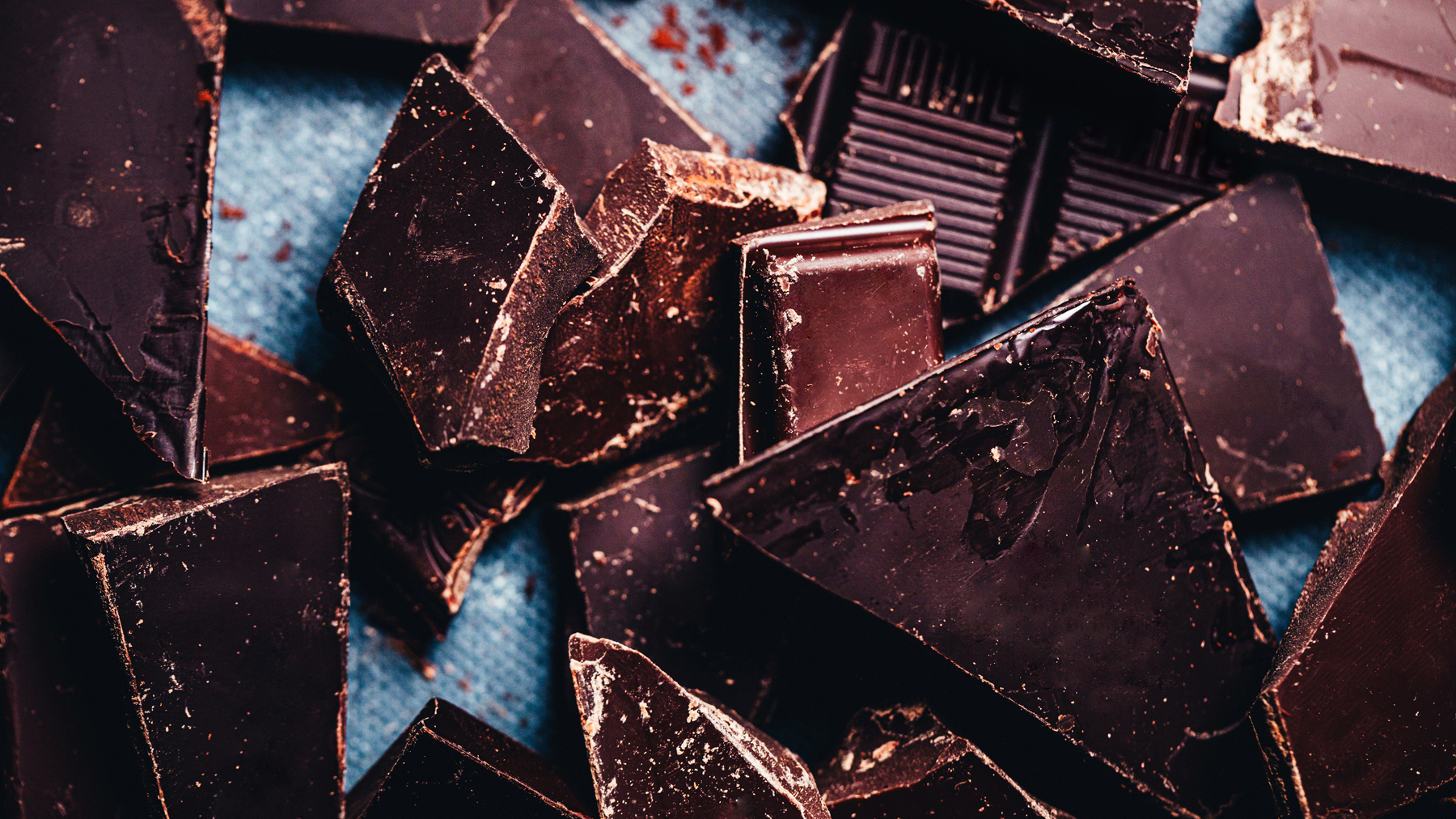10 foods that are rich in vitamins
10 foods that are rich in vitamins for those who are looking to upgrade their diet and keep their bodies healthy


Start your week with achievable workout ideas, health tips and wellbeing advice in your inbox.
You are now subscribed
Your newsletter sign-up was successful
Your body needs foods that are rich in vitamins to run. Vitamins give your body the building blocks it needs to carry out all manner of tasks, from forming strong teeth and maintaining brain function, to fighting off infection and growing healthy hair.
While there is a place for taking supplements, especially for vitamins that are hard to get from food alone such as consuming one of the best vitamin D supplements when necessary, getting as many nutrients from real food as much as possible is always best.
With that in mind, in this article, we’ll take a look at 10 foods that are rich in vitamins and include insight from experts in the field. Add these foods to your grocery list and watch your body thank you!
Our nutritional and dietary experts

Caroline Hind mBANT CNHC is a registered Nutritional Therapist for Vitaminology. She specialises in disease prevention, weight management, type 2 diabetes and cognitive health.

Rob Hobson is a registered nutritionist who has worked with some of the UK’s largest food and health companies. He works as a Nutritionist and Healthspan Head of Nutrition, trains the public health sector on best practice and has a monthly column in Women’s Health magazine.

Ellie Bain has a Nutrition and Dietetics degree from King's College London. A Registered Dietician, she is currently working as a Senior Nutritionist at Gousto.
Foods that are rich in vitamins
1. Beef Liver
Beef liver was a staple for our ancestors, who practiced nose-to-tail eating, but it’s fallen out of favor in recent years. It’s worth adding some of this offal to your weekly meal rotations, as it’s one of the most nutritionally dense foods on the planet.
“Rich in retinol and a variety of other vitamins and minerals, liver is also the best way to ensure a good intake of vitamin B12. Because vitamin B12 depends on excellent digestion and a supply of animal-sourced foods in the diet, many people do not have adequate levels of this important vitamin. It cannot be emphasized enough how vital vitamin B12 is for good nervous system function, energy production and pain management,” says Caroline Hind mBANT CNHC, Registered Nutritional Therapist for Vitaminology. Go for traditional liver and onions, make your own paté or hide small pieces of liver in stews and cass
2. Berries
Berries are one of the healthiest foods you can include in your diet. They are loaded with antioxidants which research published in BioMed Research International has found may protect your cells from free radical damage and lower your risk of disease. All berries are beneficial, but one study published in the Journal of Agricultural and Food Chemistry found blueberries, blackberries, and raspberries boasted the highest antioxidant activity of the most commonly consumed fruits. They're also a good source of fiber and packed full of vitamin C, which you need to absorb iron, heal wounds and have a functioning immune system.
3. Salmon
Fatty fish comes with a whole host of health benefits and salmon is a great choice. While you can take a fish oil supplement, if you can make it work, whole foods are preferable.
Start your week with achievable workout ideas, health tips and wellbeing advice in your inbox.
“This oily fish is one of the richest sources of omega 3 fatty acids which are good for your heart health. Salmon is also high in protein at 29g per 140g serving. You can also find a good source of potassium, selenium, iodine and B vitamins in salmon, especially B12. Salmon is also one of the few foods to contain vitamin D at 6.5mcg per 140g serving which is 132% of the recommended guidance,” says Rob Hobson, Healthspan Head of Nutrition.
“Sardines, mackerel, anchovies and herrings are just as rich, if not richer, in Omega-3 oils, but the mild flavor of salmon makes it a top Omega-3 pick for most of us,” adds Caroline.
4. Oysters
“Rich in zinc, oysters have a reputation as an aphrodisiac and it is true that zinc is essential for healthy sexual function and reproduction,” says Caroline. “Oysters additionally contain an amino acid that might help libido – D-aspartic acid – as well as Omega-3 oils.”
But oysters are beneficial outside the bedroom, too. “Zinc also underpins immune system function and helps us produce the all-important stomach acid that disinfects our food and breaks it down for good absorption of nutrients.” If you don’t have access to fresh oysters, you can buy them canned in olive oil for a healthy and convenient addition to your pantry.
5. Carrots
Carrots are packed with beta carotene, which can be converted by your body into vitamin A. Vitamin A can aid cell growth and support your immune system, reproduction and vision. According to the U.S Department of Agriculture, it delivers 119% of the daily recommended amount of vitamin A in just 1 cup. Carrots are also packed full of other useful nutrients including vitamins C and K, along with potassium.
6. Dark chocolate
High-quality dark chocolate is made from the seed of the cacao tree and is one of the best sources of antioxidants around, plus it also contains some levels of vitamin E and B vitamins. “It is a rich source of polyphenols, especially flavonoids, which have been found to reduce stress. Chocolate also has a high tryptophan content, which the body uses to turn into mood-enhancing neurotransmitters, such as serotonin, in the brain,” says Ellie Bain, Registered Dietician and Nutritionist at Gousto.
7. Garlic
Garlic has few calories and is rich in vitamin C, vitamin B6 and manganese, along with trace amounts of various other nutrients. But there's more to garlic than its vitamin content. The active compound in garlic is allicin, and research published in the Drugs and Lactation Database has found this helps both blood sugar and heart health.
8. Eggs
Egg yolks (the yummiest bit for some!) are a great source of vitamin D and protein. “Eggs also contain tryptophan, an amino acid that helps create serotonin. As they’re so versatile, they are a great mood-boosting addition for any time of day,” says Ellie.
They are also a great source of retinol. "Eggs provide this form of vitamin A that is ready for use without conversion, supporting above all eye health and the immune system," says Caroline. They also have a readily absorbed version of vitamin B7, vitamin D, vitamin E. "Many people are not getting enough vitamin E from their diet. Eating eggs increases intake of this fat-soluble vitamin that supports the body’s antioxidant processes to protect cells and maintain cardiovascular health,” she adds.
9. Milk
It might have fallen out of favor of late, but Caroline says: “Dairy milk is an often-overlooked superfood, rich in calcium, vitamin D and protein. Research suggests that full-fat dairy foods may support better metabolic and cardiovascular health. Look for unhomogenised milk from local farms where possible for a less-processed product, and consider fermented options such as yogurt to support gut health with beneficial bacteria.”
10. Spinach
If you're looking for nutrient density, when it comes to vegetables, you'd be hard pressed to beat spinach. According to the U.S Department of Agriculture, one cup of raw spinach will give you 16% of your daily requirements of vitamin A and 120% of your vitamin K needs. That's not bad for 7 calories! If that wasn't impressive enough, research published in Critical Reviews in Food Science and Nutrition on dark leafy greens like spinach found they are high in beta carotene and lutein, two antioxidants that may lower your risk of cancer.
Find out more on how to enhance your diet and read up on; are ginger shots good for you? Or find out the answer to; does walking help digestion?
Abby Driver is a freelance health writer and qualified fitness instructor based in Cornwall. Away from her desk she enjoys exploring the Cornish coast path, sea swimming and experimenting with new recipes.
